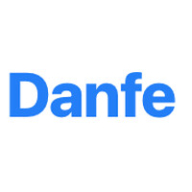

Moodle and Danfe compete in the educational technology sector. Moodle seems to have the upper hand in features and pricing, whereas Danfe outperforms in customer service and ease of deployment.
Features: Moodle provides extensive customization options, a wide range of plugins, and strong support for collaborative learning. Danfe stands out with intuitive navigation, modern design, and streamlined content creation tools.
Ease of Deployment and Customer Service: Moodle deployment involves complex configuration options but benefits from a global support community. Danfe allows quicker deployment with straightforward installation and dedicated customer service, efficiently addressing technical issues.
Pricing and ROI: Moodle typically requires a lower initial investment, beneficial for smaller institutions, with returns dependent on technical setup. Danfe's higher upfront pricing offers favorable ROI through minimal maintenance and robust support, appealing to those seeking long-term efficiency.

Danfe transforms business operations by providing an efficient system for electronic document management, ensuring compliance and streamlined processing.
Danfe focuses on usability and seamless integration to enhance business functions. It supports invoicing requirements, offering a reliable way to manage electronic documents. Designed to meet the needs of various industries, Danfe uses a comprehensive approach to ensure efficiency and accuracy. Implemented in multiple sectors, it supports real-time processing and compliance, making it an integral part of modern business management strategies.
What are the key features of Danfe?Danfe is widely implemented in manufacturing, retail, and logistics industries. Its ability to handle large volumes of transactions efficiently makes it highly valued. In manufacturing, it optimizes supply chain documentation, while in retail, it supports seamless transaction tracking. Logistics companies benefit from Danfe's real-time tracking capabilities, ensuring timely and accurate deliveries.
Moodle is an open-source LMS offering course management, community plugins, and comprehensive integrations. Its modular design supports extensive customization, making it suitable for education sectors and corporate training.
Moodle provides a robust platform for creating and managing educational content. It integrates seamlessly with tools like Zoom and Teams, enhances cheat prevention with exam question shuffling, and supports advanced customization and accessibility. While its flexibility caters to diverse educational and corporate environments, Moodle faces challenges with login issues, improving mobile functionality, and a cumbersome setup process. Efforts to enhance documentation and ensure ease of navigation are ongoing. Its integration capabilities with ERP systems and support for LTI tools further position Moodle as a valuable resource for both educators and learners.
What are Moodle’s key features?In educational and corporate industries, Moodle is implemented for exam scheduling, resource management, and online assessments. It facilitates instructor-student interactions and is adaptable for both on-premises and cloud deployments. Organizations leverage Moodle for customizing employee certifications and training programs, benefiting from its versatile access controls and management tools.
We monitor all Learning Management Systems (LMS) reviews to prevent fraudulent reviews and keep review quality high. We do not post reviews by company employees or direct competitors. We validate each review for authenticity via cross-reference with LinkedIn, and personal follow-up with the reviewer when necessary.